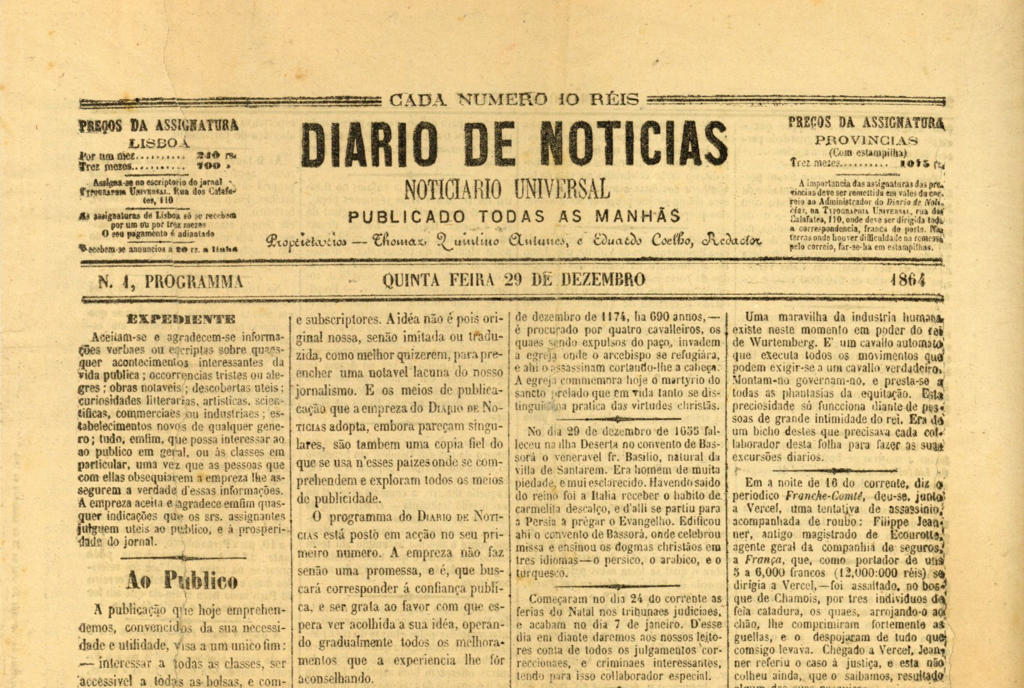During the 1880s, the renowned novelist Eça de Queiroz, who was serving in the Portuguese diplomatic service in Newcastle-upon-Tyne, England, contributed occasional "London letters" to the newspaper. These letters provided readers with insights into life in England and were later published in a book titled "Cartas de Inglaterra" (Letters from England).
Prior to the Carnation Revolution in Portugal, Diário de Notícias was under the ownership of the Empresa Nacional de Publicidade, a propaganda arm of the dictatorship. However, following the revolution, the newspaper went through a period of nationalization that lasted until the early 1990s. Eventually, the paper and another prominent newspaper, Jornal de Notícias, were sold to the Lusomundo group. In 2005, the Controlinveste group acquired ownership of both newspapers. Currently, Diário de Notícias and Jornal de Notícias are owned by the Global Media Group, a media conglomerate from Angola.
Lisbon.vip Recommends
Throughout its history, Diário de Notícias has garnered a reputation as a newspaper of record in Portugal. Its commitment to delivering accurate and relevant news has solidified its position as a trusted source of information for the Portuguese public.
In terms of circulation, Diário de Notícias experienced fluctuations over the years. In the mid-1990s, it had a circulation of approximately 63,000 copies. However, by 2008, the circulation had decreased to around 33,000 copies. In more recent years, the newspaper has faced challenges, with circulation dropping below 19,000 copies by 2017. To adapt to the changing media landscape, Diário de Notícias has embraced online advertising and relied on the support of its parent company, the Angolan media conglomerate that currently owns it, to sustain its operations.
Despite the challenges faced, Diário de Notícias remains an integral part of Lisbon's media landscape and continues to provide valuable news coverage and journalistic insights to its readers. Its long-standing history and connection to the city make it a significant cultural institution, reflecting the evolving media landscape and the enduring importance of reliable journalism in Lisbon and beyond.



